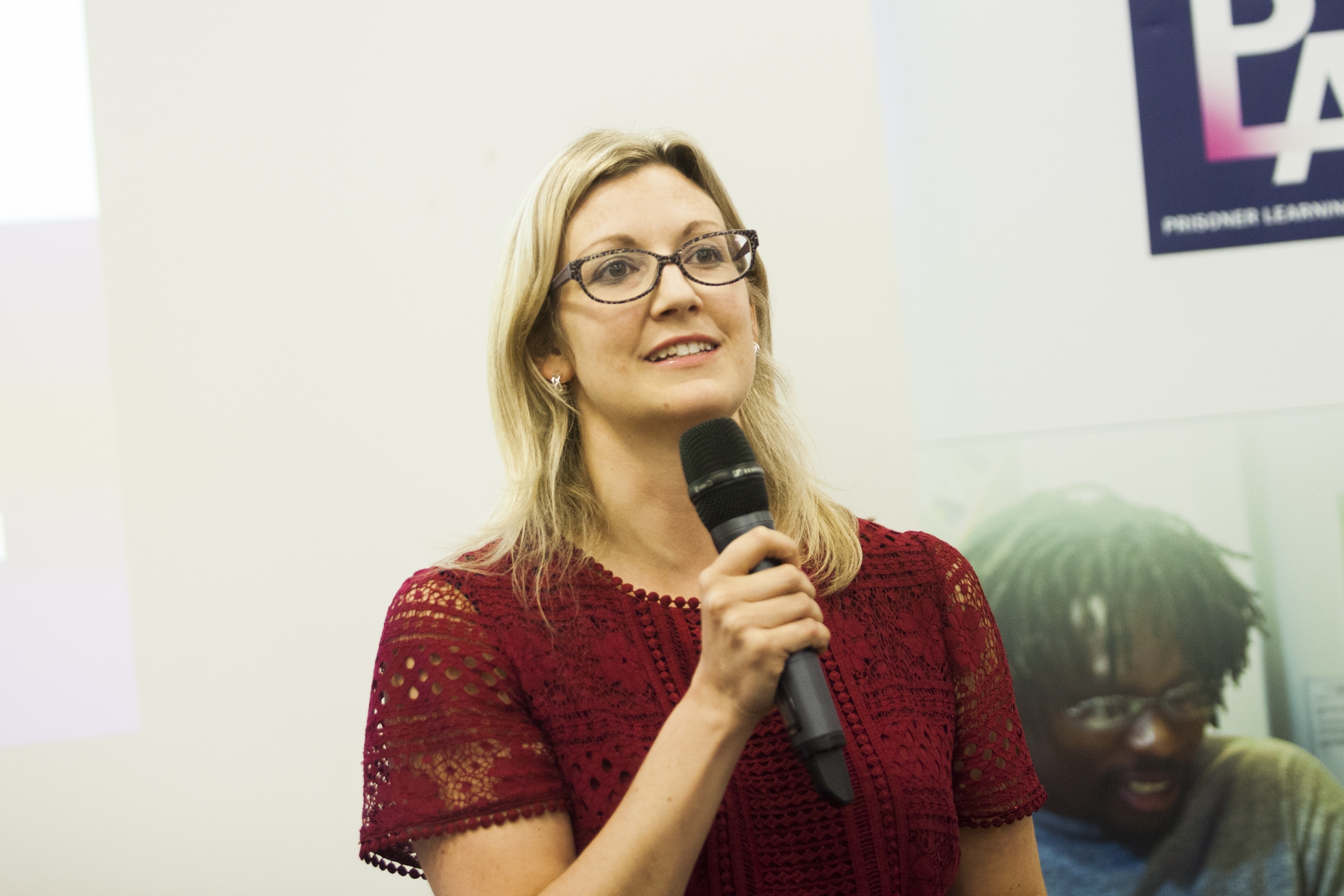

Nina Champion, PLA Secretariat and PET Head of Policy
As the Prisoner Learning Alliance prepares to launch a new membership structure in 2018, we re-visit some of its key successes.
 The Prisoner Learning Alliance (PLA) was established by Prisoners’ Education Trust (PET) in 2012 at the start of the Offender Learning and Skills Service (OLASS) 4 contracts, when prison education was not on the political agenda. After setting out a blueprint, ‘Smart Rehabilitation’, for prison education that was ‘outcome-focused, joined-up and value-driven’, the PLA has worked for this vision to become a reality over the last five years. The PLA’s briefing document on prison education contracts, ‘The Future of Prison Education Contracts: Delivering better outcomes’, was picked up by new Ministers after the 2015 General Election. It was a key contribution to Dame Sally Coates’ review of prison education on which PLA members were actively involved. Over 80% of PLA recommendations were picked up in Dame Sally’s final report.
The Prisoner Learning Alliance (PLA) was established by Prisoners’ Education Trust (PET) in 2012 at the start of the Offender Learning and Skills Service (OLASS) 4 contracts, when prison education was not on the political agenda. After setting out a blueprint, ‘Smart Rehabilitation’, for prison education that was ‘outcome-focused, joined-up and value-driven’, the PLA has worked for this vision to become a reality over the last five years. The PLA’s briefing document on prison education contracts, ‘The Future of Prison Education Contracts: Delivering better outcomes’, was picked up by new Ministers after the 2015 General Election. It was a key contribution to Dame Sally Coates’ review of prison education on which PLA members were actively involved. Over 80% of PLA recommendations were picked up in Dame Sally’s final report.
The PLA has also developed and promoted our vision in a wide variety of other ways, such as developing a Theory of Change for the impact of prison education; holding annual conferences; submitting consultation responses; giving oral evidence to parliamentary select committees; speaking to the media; meeting ministers and working with senior civil servants. This work is always underpinned by the expertise of our members and the voices of current and former learners which are heard at all PLA meetings.
Although there is a long way to go for the Smart Rehabilitation blueprint to become a reality in every prison, the PLA has made significant progress and looks forward to building on these strong foundations:
- The PLA influenced a broader definition of education and governor-led commissioning
This year, the Ministry of Justice published a new definition of prison education:
“[A]ctivities that give individuals the skills they need to unlock their potential, gain employment and become assets to their communities. It should also build social capital and improve the well-being of prisoners during their sentences.”
This holistic, outcome-focused definition is drawn closely from Dame Sally Coates’ review of prison education and represents a victory for the PLA, which has consistently promoted the benefits of education for social outcomes, social capital and wellbeing since its 2013 ‘Smart Rehabilitation’ report, and promoted this wording in its 2016 Theory of Change, ‘What is prison education for?’. The new definition will also act as an important guide for prison governors on how they can spend their education budgets as they gain greater autonomy, as called for by the PLA in our 2015 briefing, ‘The Future of Prison Education Contracts: Delivering better outcomes’.
- Our guide to education commissioning gained Ministerial approval
After consultation with members, governors, staff and Ministry of Justice officials, in 2017 the PLA launched a resource to support prison governors and directors, entitled ‘Greenhouses not Warehouses: Commissioning education to plant seeds of hope and opportunity’. This resource – complete with a foreword by Prisons Minister Sam Gyimah MP – is a practical guide to help prisons get the most out of their increasing powers over education budgets. It also forms part of the new Ministry of Justice professional development programme for governors.
- Government sought PLA consultation on new prison education contracts
The PLA has become a key influencer in developing effective prison education policy. Accordingly, the PLA has successfully engaged with Ministry of Justice (MoJ) officials to provide regular expertise on key policy developments, including implementation of the new prison education commissioning arrangements. The first in a series of MoJ/PLA forum meetings took place in December 2017, and these will continue as the reforms develop.
- Education budgets now allow for ‘engagement and progression’ in education
In its 2015 briefing, the PLA called for the prison education contracts to enable greater ‘engagement and progression’ of learners. We were therefore delighted when, in 2016, new funding flexibilities were introduced within prison education budgets for ‘Enablers of Learning’ and ‘Engagement and Progression Learning’. In roughly the same period, Ofsted inspection results have shown a 16% increase in the number of prisons obtaining ‘Good’ or ‘Outstanding’ grades for their education provision.
- PLA Awards bring outstanding prison staff and mentors to the national political stage
2017 was the year of the third annual PLA Awards – recognising the teachers, officers, peer mentors and others who had made an outstanding contribution to prison education. In 2017 the PLA received over 400 nominations from serving prisoners, a 100% increase on 2016’s total. A content analysis of nominations helped build understanding of the qualities learners value in staff, and has influenced a review of prison officer training. Our winners were commemorated in a special magazine, and one was even mentioned in the party conference speech of Secretary of State for Justice, David Lidington MP:
“There’s the officer in Northumberland who runs the recycling yard in his prison, who’s built basic English and Maths skills into the work, and set up links with local businesses to secure jobs for his men when they’ve done their time.
One of the prisoners in his team put it this way. He said: “Not only does this give us hope, it also gives us purpose in life”.